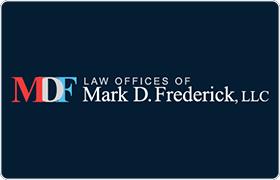Shreveport Divorce & Family Law Lawyer, Louisiana
Sponsored Law Firm
-
 x
x

Click For More Info:
-
The Law Offices of Mark D. Frederick, LLC
2800 Youree Drive Suite 400 Shreveport, LA 71104» view mapDivorce & Family Law Committed, Concerned Shreveport Attorney
Versatile, client-focused Mark D. Frederick established his law practice nearly a quarter-century ago for one reason: to help those facing a crisis involving the legal system.
318-868-7300
Thomas A. Bordelon
✓ VERIFIEDTHOMAS A. BORDELON was born in San Antonio, Texas on December 6, 1959. Mr. Bordelon graduated cum laude from Louisiana State University at Shreveport... (more)
Mark Daniel Frederick
✓ VERIFIEDMark D. Frederick has over 20 years of legal experience, enabling him to handle the demands of your case regardless of the complexities involved. As y... (more)
Richard Eugene Griffith
✓ VERIFIEDShreveport native, Richard E. Griffith practices in all areas of family law including adoption, child custody, and divorce. Griffith has been in ... (more)
J Ransdell Keene
✓ VERIFIEDPracticing law for more than 40 years, J. Ransdell Keene is a trusted legal ally for clients throughout the Shreveport area and across Louisiana. As a... (more)
J. Dhu Thompson
✓ VERIFIEDDhu Thompson is a criminal defense, family law, and catastrophic injury lawyer in Louisiana. After graduating from Southern University Law School in 2... (more)
 Mark Frederick Shreveport, LA
Mark Frederick Shreveport, LA Practice AreasExpertise
Practice AreasExpertise





